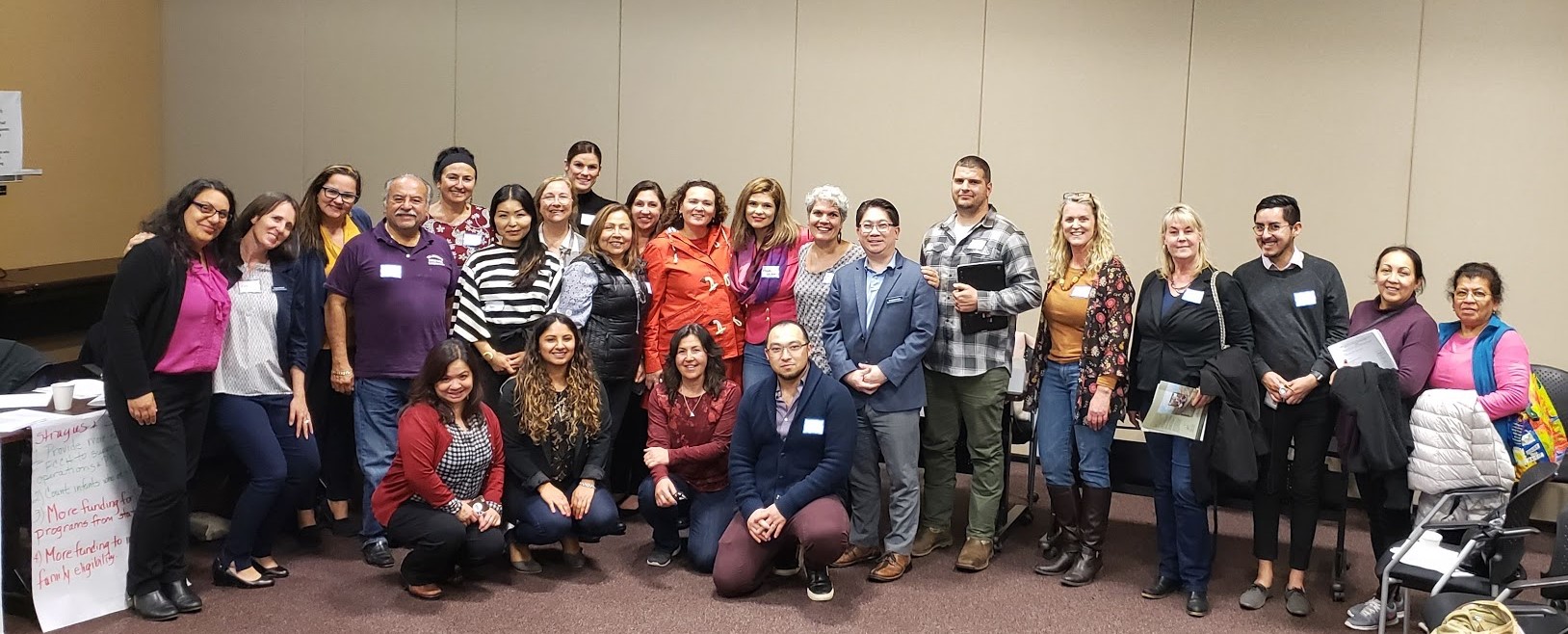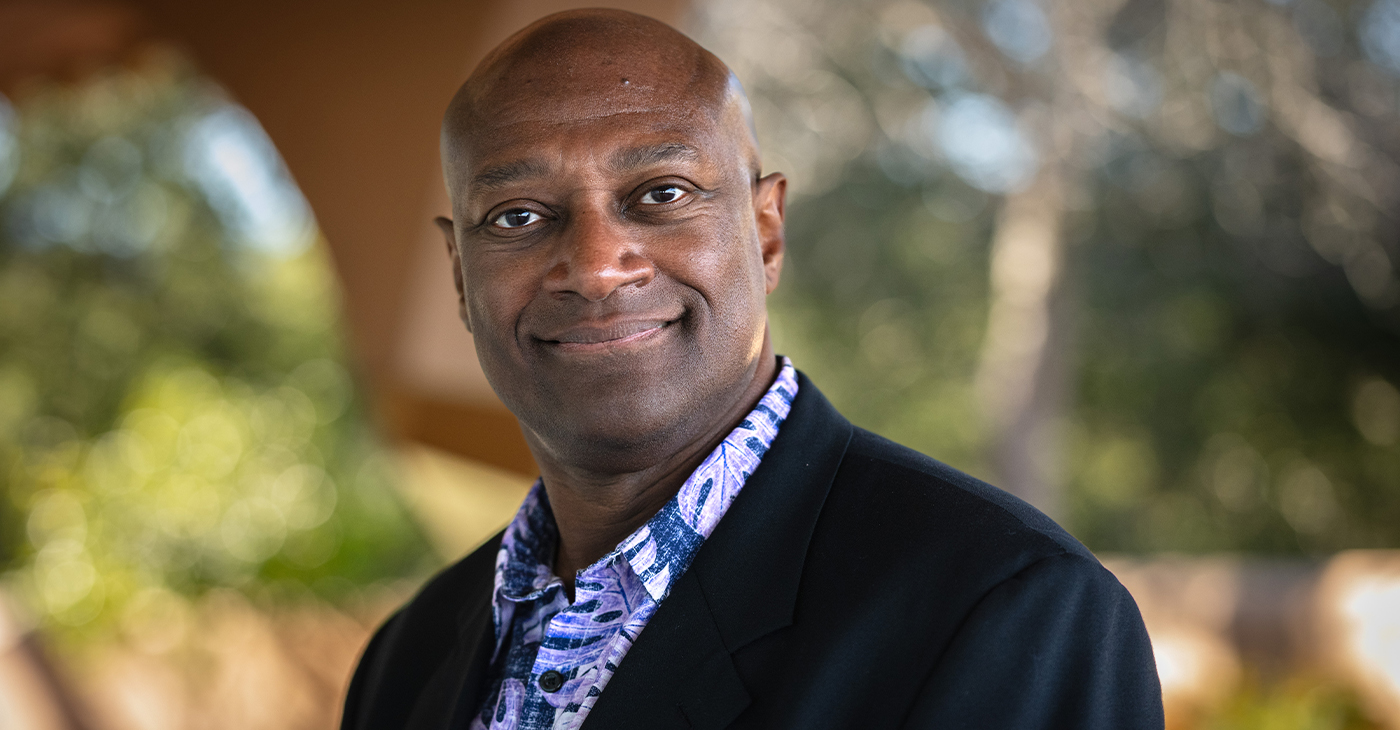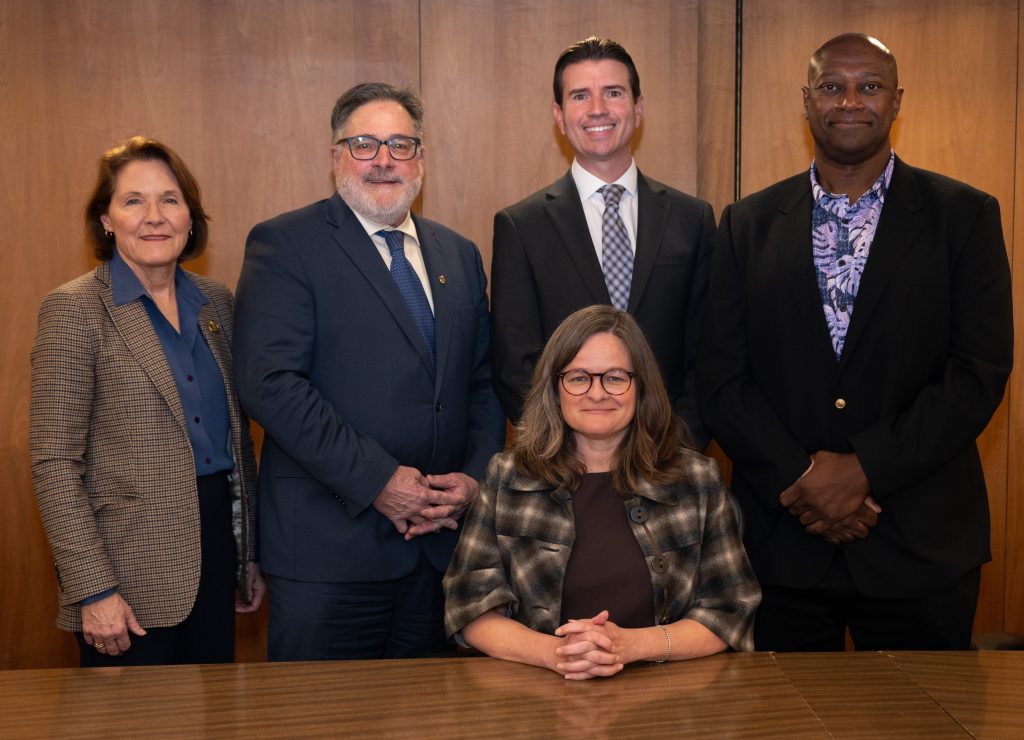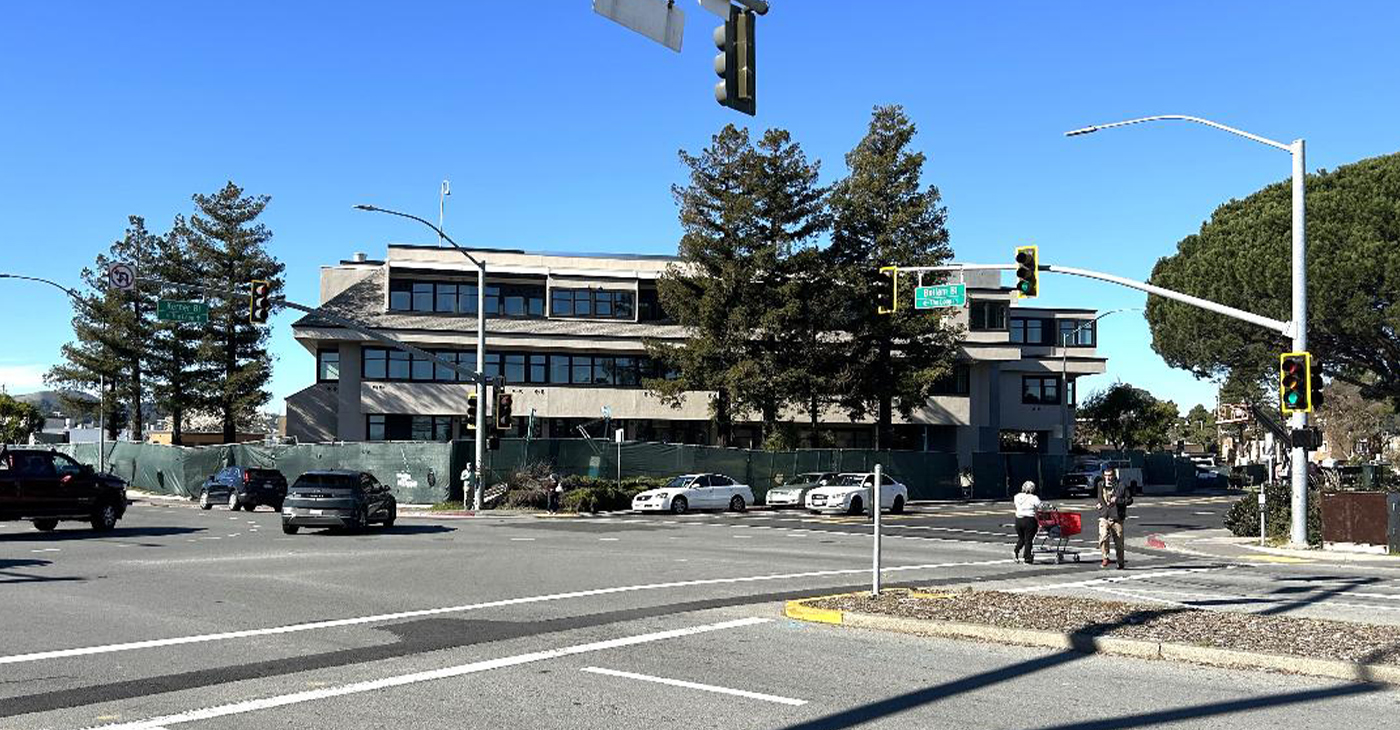Marin County
Marin County Child Care Commission’s 4th Annual Community Meeting on Early Care and Education

The Marin County Child Care Commission started the Month of the Young Child by hosting the Fourth Annual Community Meeting on Early Care and Education at the Marin County Office of Education.
At the April 2 event, the Commission launched the countywide 2020-2025 Early Learning and Care Strategic Plan design process with the support of many organizations, including First 5 Marin, MarinKids, Parent Voices, Parent Services Project, Marin Child Care Council, Papermill Creek Children’s Corner, Community Action Marin and Marin Promise.
County Supervisor Damon Connolly opened the meeting with welcome remarks emphasizing the importance of early education as a key component in making Marin a more equitable county. He also highlighted it as a two-generation approach to address inequities: it keeps parents working and kids learning.
Representatives from State Senator Mike McGuire and Assemblymember Marc Levine’s offices shared updates on the Gov. Gavin Newson’s proposed state budget, including a $500 million one-time investment in the early care and education’s infrastructure and workforce. They also explained some of the bills that could promote positive changes in the field, including Skinner’s SB 234, the Keep Kids Close to Home Act, which is being proposed to equalize the permitting requirements and to strengthen tenant protections for family child care providers.
Meeting participants discussed in small groups some of the key findings from the Marin County 2018-2019 Early Learning and Care Needs Assessment Report, including the reduction in 7 percent of the overall number of child care spaces in the county in the last five years, the lack of spaces for infants and toddlers, and the staff turnover affecting the field. Other findings discussed:
• 46 percent of infants and toddlers and 63 percent of school-aged children with working parents do not have access to child care
• Over 60 percent of infants and toddlers and 54 percent of school-aged children in working families who qualify for subsidized child care (with income at/below 70 percent SMI) are not receiving care
Attendees shared potential solutions to challenges affecting the field, including tax breaks for local businesses to help offset child care costs, and the possibility of providers to join forces in order to offer health and other benefits for their staff.
Jason Lau, PhD, Commissions Chair, closed the meeting by inviting the public to participate in the process of creating the countywide 2020-2025 Early Learning and Care Master Plan: “The Plan will be a guide for our next steps as a county to improve access, quality, and coordination of our early care and education services. I am glad to be part of it and I want to thank everyone here for your commitment to participate in this process in the upcoming months.”
For more information about the Marin County Child Care Commission and to get involved, please visit www.marinchildcare.org or call (415) 499-5827.
Activism
Andre Thierry Explores Zydeco Music at Marin City Library
Grammy-nominated Andre Thierry leads the musical program with an interactive, engaging experience that combines traditional and newly composed music.

By Godfrey Lee
The “Are You Ready to Learn” music program allows children, families, and adults, to explore the rich Kreole culture and Zydeco music of southwestern Louisiana.
Grammy-nominated Andre Thierry leads the musical program with an interactive, engaging experience that combines traditional and newly composed music.
The program, created by Thierry, showcases a mix of African and Native American Blues and French Kreole dance melodies with elements of Afro-Caribbean music.
Children and families sing and dance while learning about popular Zydeco instruments like vest rub boards, drums, and accordion.
For information on the program, go to https://www.andrethierry.com
The free program will take place on Sunday, Feb. 9, at 1 p.m., at the Marin City Library, 164 Donahue St., in Marin City. For more information, call 415-332-6158.
Thierry will be performing again the Fairfax Library, 2097 Sir Francis Drake Blvd., Fairfax, on Saturday, Feb. 15, at 11 a.m. For more information, call 415-453-8092.
Alameda County
Brian Colbert Sworn in as Marin County’s First Black Supervisor
A 10-year San Anselmo resident, Former San Anselmo Mayor Brian Colbert was raised in Connecticut and has degrees from Oberlin (Ohio) College and the University of Chicago Law School. He worked on Wall Street, with several tech startups, and for a concierge medical practice in San Francisco. He was elected to the San Anselmo Town Council in 2017, was reelected in 2020, and served twice as mayor.

By Oakland Post Staff
Former San Anselmo Mayor Brian Colbert officially joined the Marin County Board of Supervisors on Jan. 14 as the District 2 representative. Colbert’s swearing-in was a celebratory event at the Marin County Civic Center that coincided with the swearing in of District 3 Supervisor Stephanie Moulton-Peters for a second term. District 1 Supervisor Mary Sackett, who has been selected as Board President, took her oath of office that day.
Colbert was elected in November 2024 to replace retired District 2 Supervisor Katie Rice, who served in that role since 2011 and completed 20 years of service as a county employee.
Colbert now represents the entire Ross Valley area following seven years on the San Anselmo Town Council.
A 10-year San Anselmo resident, Colbert was raised in Connecticut and has degrees from Oberlin (Ohio) College and the University of Chicago Law School. He worked on Wall Street, with several tech startups, and for a concierge medical practice in San Francisco. He was elected to the San Anselmo Town Council in 2017, was reelected in 2020, and served twice as mayor.
“As your newly elected official, I am committed to working tirelessly for the people of Marin County,” Colbert said. “Our county’s unique and distinct character — its natural beauty, diverse communities, and innovative spirit — makes it a place like no other.”
Colbert continued, “I will approach every challenge through the prism of preserving these values, focusing on solutions that promote economic vitality, environmental stewardship, and resilience. My pledge is to listen to your concerns, act with integrity, and ensure that every voice is heard as we tackle the issues that matter most and building a brighter future where opportunity and compassion go hand in hand.”

The Marin County Board of Supervisors members are (from left, standing) District 3’s Stephanie Moulton-Peters, District 4’s Dennis Rodoni, District 5’s Eric Lucan, District 2’s Brian Colbert, and (seated) District 1’s Mary Sackett, who is serving as Board President for 2025.
The ceremony included Colbert taking his public oath of office, administered by his daughter. There were also celebratory elements such as a performance by gospel singers from his district.
Supervisor Colbert’s swearing-in is a milestone for Marin County, as he is the first African American elected to the Board since its inception in 1852.
The Board typically meets two or three times a month on Tuesday mornings in the Board chamber of the Marin County Civic Center, Suite 330 in San Rafael. Meetings are conducted both in person at the chamber and also via videoconference to increase public engagement opportunities.
Meeting start times are usually 9 AM. All Board meetings are televised live on channel 27 for Marin County subscribers of Comcast/Xfinity and streamed live on MarinCounty.gov. Videos and agendas of the meetings dating to 2005 are archived on the website as well.
“We have a collaborative Board of Supervisors that is grounded in finding solutions for the good of our constituents, the County overall, and the health of our planet,” Sackett said during her opening remarks Tuesday. “I am focused on the County delivering essential services efficiently and effectively.”
Alameda County
Funds Available for Nonprofits Assisting Marin’s Households
As of Jan. 22, applications are being accepted within the County of Marin’s annual funding cycle for Community Development Block Grants (CDBG) and Home Investment Partnerships Program (HOME) grants. Both are administered by the Marin County Community Development Agency (CDA), which leverages several local, state, and federal funding sources for the programs.

Feb. 19 is the deadline to apply for more than $3.6 million; Webinars set for Jan. 29
Special to The Post
An annual funding opportunity is now open for developers and nonprofits considering projects focused on the creation of affordable housing, community infrastructure and other services in Marin County – especially those designed to assist local lower-income households. All told, $3.6 million is on the table.
As of Jan. 22, applications are being accepted within the County of Marin’s annual funding cycle for Community Development Block Grants (CDBG) and Home Investment Partnerships Program (HOME) grants. Both are administered by the Marin County Community Development Agency (CDA), which leverages several local, state, and federal funding sources for the programs.
CDA also administers the State of California’s Permanent Local Housing Allocation, including a 1-to-1 match from the Marin Affordable Housing Fund. This year, in partnership with the City of San Rafael, applicants may also apply for City of San Rafael Affordable Housing Trust Funds (AHTP) through the same application.
Local agencies have until 5 p.m. Wednesday, Feb. 19, to apply for the funds. Application webinars will be held online Wednesday, Jan. 29, to provide details to potential applicants.
Many residents struggle to meet basic needs with housing, health, childcare, and food security. Marin has one of the highest median household incomes in California – $186,600 for a family of four. However, it also has some of the highest home prices and development costs in the country. The median local price for a single-family, detached home has neared $1.8 million in recent months, and typical rents range from $2,500 to $3,400.
There is increasing pressure on charitable organizations to provide help. The federal grants program offers funding to those nonprofits delivering key services to the community with a minimum grant size of $15,000.
Application materials for the 2025 cycle are available on CDA’s Notice of Funding Availability webpage and in CDA’s Marin County Civic Center office at 3501 Civic Center Drive, Suite 308, in San Rafael. The office is open weekdays from 8 a.m. 4 p.m.
Applications are assessed on how they meet funding priorities and goals, affirmatively further fair housing, serve low-income residents and serve local members of protected classes based on race, gender, disability, and other factors. The grants are not available to individuals; those in need of housing assistance and resources are encouraged to review the County’s Housing Help webpage.
During the Jan. 29 webinars, participants will learn more about the application process, types of eligible projects, and new project requirements. The sessions are organized into two distinct presentations:
- 1:30-2:30 p.m. – Community Infrastructure (Capital) and Public Service Projects
- 2:30-3:30 p.m. – Housing Projects
CDA staff members are available throughout the application process to consult with organizations unable to attend the online sessions. Office hours will be held throughout the application process; register via the division’s webpage. For more details, email the Housing and Federal Grants Division.
Staff will review applications and conduct public hearings about recommended allocations this spring. By June, the Board of Supervisors will hold a final public hearing and make recommendations to be submitted to the federal government. Approved allocations would be received by the applicants by autumn.
The County of Marin Media Relations Department is the source for this story.
-

 #NNPA BlackPress3 weeks ago
#NNPA BlackPress3 weeks agoMLK Bust Quietly Removed from Oval Office Under Trump
-

 Activism4 weeks ago
Activism4 weeks agoOakland Post: Week of April 30 – May 6, 2025
-

 Activism3 weeks ago
Activism3 weeks agoOakland Post: Week of May 7 – 13, 2025
-

 #NNPA BlackPress3 weeks ago
#NNPA BlackPress3 weeks agoTrump Abruptly Fires First Carla Hayden: The First Black Woman to Serve as Librarian of Congress
-

 Activism2 weeks ago
Activism2 weeks agoNew Oakland Moving Forward
-

 Activism2 weeks ago
Activism2 weeks agoAfter Two Decades, Oakland Unified Will Finally Regain Local Control
-

 Activism2 weeks ago
Activism2 weeks agoOakland Post: Week of May 14 – 20, 2025
-

 Alameda County2 weeks ago
Alameda County2 weeks agoOakland Begins Month-Long Closure on Largest Homeless Encampment




















































